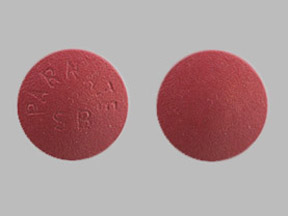
Tranylcypromine Coupons & Savings Card – Discount Prices from $79.67
Generic for: Parnate
My prescription
Edit
10MG, Tranylcypromine (180 Tablets)
Select pharmacy

CVS
$79.67
COUPON PRICE
Walgreens
$141.84
COUPON PRICE
Albertsons
$142.44
COUPON PRICE
Walmart
$150.49
COUPON PRICETranylcypromine savings card
Show this card to your pharmacist
CVS
$79.67
BIN
ID
PCN
GRP
011867
LH9CADC33B
HT
LABH001
Powered by
More prescriptions for depression
More prescriptions for depression
Price history for Parnate (brand) & Tranylcypromine (generic)
180 Tablets, 10MG
Average retail price for Parnate
Average retail price for Tranylcypromine
Average SaveHealth price for Tranylcypromine
Our price history data is based on aggregated prescription data collected from participating pharmacies in America. Our prescription data updates daily to reflect the latest price changes. If you notice a missing data point, it means there wasn't sufficient data available to generate a monetary value for that date.
We analyzed Tranylcypromine prices for (10MG, 180 Tablets) over the last 12 months. The average retail price was $499.07, while the average price using the SaveHealth discount card was $137.90. That's a savings of approximately 72.37% when using our Tranylcypromine coupon.
Compared to the generic version, Parnate had an average price of $1193.56 over the same time period. With the SaveHealth savings card, Tranylcypromine is 88.45% cheaper on average than Parnate.
*Retail prices are based on pharmacy claims data, and may not be accurate when we don't have enough claims.
Tranylcypromine dosage forms
Dosage Quantity Price from Per unit 10MG 180 Tablets $82.33 $0.46 10MG 100 Tablets $49.43 $0.49
| Dosage | Quantity | Price from | Per unit |
|---|---|---|---|
| 10MG | 180 Tablets | $82.33 | $0.46 |
| 10MG | 100 Tablets | $49.43 | $0.49 |
Tranylcypromine Warnings
This safety and warning guide provides essential information on the use of the medication, tranylcypromine (Parnate). It highlights potential risks, necessary precautions, and special instructions for use.
Risk of Suicidal Thoughts or Behavior: Tranylcypromine may increase the risk of suicidal thoughts, especially in individuals aged 24 and younger or those with a history of depression. Be vigilant for mood changes or worsening symptoms, particularly during the initial months of treatment or when adjusting doses. Contact your healthcare provider immediately if any concerning behaviors or thoughts arise.
High Blood Pressure Hazard: This medication can cause dangerously elevated blood pressure, which can be life-threatening. Avoid foods high in tyramine, such as aged, pickled, or fermented items, and be cautious with certain medications like OTC cold remedies. Regularly monitor your blood pressure and seek medical attention if you experience severe headaches, a rapid heartbeat, neck stiffness, or nausea.
Serotonin Syndrome Alert: High serotonin levels can lead to serotonin syndrome, a serious condition. Symptoms include rapid heartbeat, sweating, muscle rigidity, and confusion. This risk increases if combined with other serotonin-influencing drugs. Seek immediate medical care if symptoms occur.
Bipolar Disorder Consideration: Depression might be an early sign of bipolar disorder, which tranylcypromine does not treat and may provoke manic episodes. A thorough screening for bipolar disorder should be conducted prior to starting treatment, and a family history of bipolar disorder should be disclosed to your provider.
Low Blood Pressure Caution: Tranylcypromine may cause a sudden drop in blood pressure, leading to dizziness or falls, especially when changing positions. Adjust positions slowly and consult your provider if this occurs frequently.
Withdrawal Symptoms: Do not abruptly discontinue tranylcypromine without medical guidance, as it may lead to withdrawal symptoms such as headaches, dizziness, and mood changes. Your provider can assist in tapering the dose gradually.
Low Blood Sugar in Diabetics: This medication can exacerbate low blood sugar in individuals with diabetes. Monitor blood glucose levels closely and consult with your provider for potential adjustments to diabetes medication if necessary.
Liver Damage Risk: Tranylcypromine can cause liver damage. Report symptoms like fatigue, nausea, loss of appetite, or jaundice to your healthcare provider promptly.
Contraindications: Certain conditions and medications can interact negatively with tranylcypromine. Do not use this medication if you are taking other antidepressants, migraine medications, certain allergy medications, or have a tumor on the adrenal gland (pheochromocytoma). Always consult your healthcare provider before starting new medications.
This summary is intended to enhance understanding of tranylcypromine's safety profile and ensure informed use. Always consult with your healthcare provider for personalized advice.
Tranylcypromine Side Effects
Common side effects:
- Dizziness
- Drowsiness
- Tiredness
- Weakness
- Trouble sleeping
- Constipation
- Dry mouth
- Headache
- Blurry vision
Less common but important to monitor:
- Loss of appetite
- Weight gain
- Anxiety
- Sexual dysfunction
- Ringing in the ears
- Fast heartbeat
- Bladder problems
- Fluid retention
- Bloating
- Double vision
- Poor coordination
Serious side effects:
- Dangerously high blood pressure
- Serotonin syndrome
- Liver damage
- Seizures
- Suicidal thoughts or behavior
- Very serious allergic reaction
Tranylcypromine Interactions
Interactions with high risk of serious adverse effects and should be avoided:
- Amitriptyline
- Nortriptyline
- Maprotiline
- Mirtazapine
- Nefazodone
- Diethylpropion
- Atomoxetine
- Methylphenidate
- Apraclonidine
- Bupropion
- Buspirone
- Carbamazepine
- Guanethidine
- Methyldopa
- Atenolol
- Isocarboxazid
- Linezolid
- Phenelzine
- Fentanyl
- Tapentadol
- MDMA ('ecstasy')
- St. John's Wort
- Fluoxetine
- Venlafaxine
- Codeine
- Hydrocodone
- Alprazolam
- Zolpidem
- Dextromethorphan
Interactions with moderate risk that may require dose adjustment, closer monitoring, or timing changes:
- Serotonin-raising drugs
